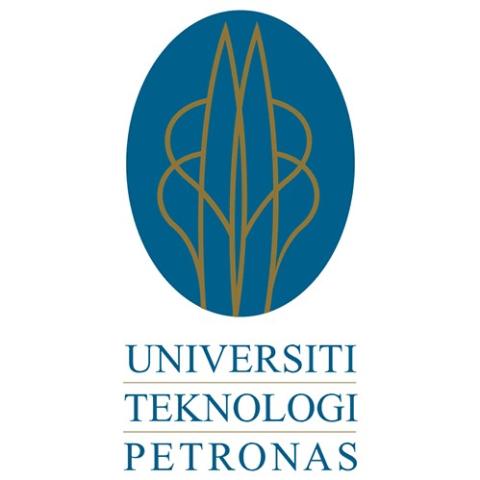
Nurturing advanced problem-solving skills with integrated projects
Integrated projects can be a powerful tool for bolstering problem-solving capabilities and encouraging students to integrate knowledge from various courses
You may also like
Engineering students often grapple with the challenge of effectively integrating and applying the knowledge they acquire within a single semester. This issue stems from the often-fragmented structure of courses, which leads to a lack of interconnection in the subject matter. In real-world scenarios, industrial and fundamental knowledge is intricately intertwined with practical applications.
However, the conventional engineering curriculum, for example, places significant emphasis on foundational engineering principles, resulting in a gap in the continuous demonstration of comprehensive engineering problem-solving skills throughout the educational journey. The absence of knowledge integration presents a substantial obstacle for engineering students as they transition from academia to industry upon graduation.
- Messy decisions and creative science in the classroom
- Implementing project-based learning: a practical guide
- Three strategies for creating a field experience course
To address this challenge, implementing an integrated project (IP) can be a powerful approach for bolstering the problem-solving capabilities of engineering students. An IP encourages students to integrate knowledge from various courses within a single semester, equipping them to take on project tasks that span multiple disciplines to solve a specific engineering problem. The strength of the IP lies in its collaborative essence. Students who are enrolled in the same engineering courses, typically two to three courses, during the same semester come together to work on a shared project.
Before diving into the IP, instructors from these courses should collaborate to brainstorm the project’s problem statement and seamlessly integrate tasks from each course into the overarching project. Once all the tasks have been consolidated, students are briefed on the project and provided with a deadline. Notably, students are required to submit one comprehensive report in order to streamline the assessment process compared with the conventional approach of multiple report submissions. Furthermore, instructors can elevate these assessments by incorporating a presentation component, aimed not only at assessing students’ comprehension but also at refining their soft skills, helping to foster well-rounded and adaptable problem-solvers.
Throughout implementation of the integrated project, it’s important to recognise the potential challenges that students may encounter along the way, particularly in terms of information accessibility and grasping the intricacies of complex engineering concepts. To ensure a more effective learning experience within the IP framework, instructors play a pivotal role. One effective strategy to enhance the learning experience is the integration of scaffolding activities into the teaching approach. These activities can be seamlessly woven into lectures or tutorial sessions, serving as valuable support structures.
For instance, consider incorporating regular brainstorming sessions aimed at stimulating idea generation. These sessions not only encourage collaborative problem-solving but also foster a deeper understanding of the project’s objectives. Moreover, to ensure a streamlined and effective IP experience, instructors can consider implementing a progress-monitoring system. One such approach is the requirement for students to provide regular updates on their project advancements, ideally on a weekly basis. This allows instructors to gauge the project’s progress and provide guidance or support where needed. The monitoring system also fosters accountability among students, encouraging them to stay on track and manage their time effectively.
The selection of topics for the IP is a dynamic process that can evolve from one semester to the next, encompassing an array of practical industry scenarios. Ideally, the complexity of IP topics should escalate as students advance through higher semesters, facilitating the integration of knowledge gained in prior semesters. These carefully curated project scenarios serve as essential tools to immerse students in the complex world of real industrial problems.
To ensure the practicality and seamless execution of the IP, instructors who oversee the same cohort of students can take a proactive approach. At the outset of the semester, consider collaboratively designing the project and establishing a clear and comprehensive marking rubric. This initial planning phase fosters transparency and consistency in the assessment process, equipping students with a well-defined roadmap that will guide them throughout the journey of project completion.
Furthermore, the project can initially be implemented with a smaller group of students, typically comprising 20 to 30 individuals. This deliberate approach serves as a strategic means to enhance both the project and the integration of effective scaffolding activities. This hands-on experience empowers instructors to acquire valuable insights for optimising the IP methodology, aligning it with the learning objectives and unique challenges encountered by students in that particular context. Subsequently, instructors can leverage these insights to enhance the IP experience for a broader cohort of students in future semesters.
The incorporation of an IP yields considerable advantages, notably by greatly boosting students’ development in both technical and interpersonal skills. It enables students to demonstrate their grasp of knowledge acquired in previous and current semesters, effectively applying it to tackle intricate problem-solving challenges. Additionally, an IP offers the distinct benefit of time efficiency by consolidating multiple projects into a single, focused endeavour within the semester. This streamlined approach not only optimises students’ time management but also mimics real-world scenarios where multifaceted tasks are integrated into a cohesive project – a valuable skill for their future careers.
Overall, the implementation of realistic and relevant scenarios in the IP fosters authentic learning experiences, effectively preparing students for the real challenges they will encounter in their professional careers. By embracing such initiatives, universities can foster a new generation of engineers, equipped with the expertise and adaptability necessary to excel in the ever-evolving landscape of industry, technology and innovation.
Man Kee Lam is a senior lecturer and Yee Ho Chai is a lecturer in the chemical engineering department at Universiti Teknologi Petronas, Malaysia.
If you would like advice and insight from academics and university staff delivered direct to your inbox each week, sign up for the THE Campus newsletter.




